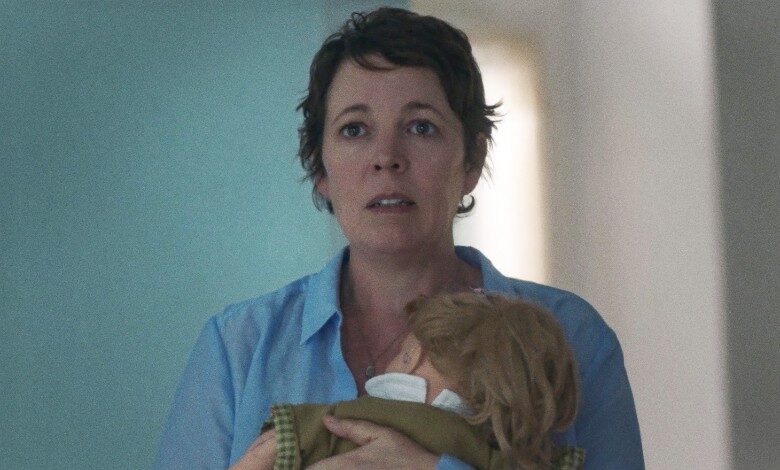
“The Lost Daughter” is the directorial debut of Maggie Gyllenhaal, whose first work as a filmmaker demonstrates her ability to garner amazing performances from her cast.
Gyllenhaal is a clearly an actor’s director. Alas, this is a repellent film with excellent performances, which you can either take as a warning and the backhanded compliment that it is.
Olivia Colman plays Leda, a single woman on a holiday in Greece. We’re initially unsure why she’s there, who she is and what it is she left behind. A series of vague, intermittent flashbacks suggest Leda has an awful secret in her past, though this plotline is addressed later.
The first act portrays Leda’s demeanor, as she is both pleasant and private but also standoffish and odd. The caretaker who shows her to her room (Ed Harris, always in top form) comes across as friendly and lonely, which Leda ignores, until her attempts to get his attention later prove awkward.
While sunning herself outside, Leda encounters a wealthy family, who are loud, invasive, passionate and horrible. The head of the family, Callie (a hypnotic Dagmara Dominczyk) is rude, until she warms up to Leda, in a way both tender and condescending.
An unexpected event makes Leda a welcome and appreciated presence. However, a big secret Leda can’t seem to give up is clearly the bomb about to go off.
Dakota Johnson talks about working with director Maggie Gyllenhaal on The Lost Daughter.#dakotajohnson #thelostdaughter #netflix pic.twitter.com/mNLyqVSumU
— cinemabang.com (@CinemabangCom) December 16, 2021
Here is one of the year’s most unappealing and unceasingly cruel films. It aims to explore the difficulties of motherhood in an unflinchingly honest manner but winds up feeling like leftover Cassavetes or a first draft Noah Baumbach.
For all the performances here that impress, and an attractive setting, this is one vacation I couldn’t wait to end. As a story, it has a perverse pull, but so do those DNA test segments on “The Maury Povich Show.”
As a character study, “The Lost Daughter” (based on the 2008 novel by Elena Ferrante) maintains our curiosity, as the reveal and the will-she-or-won’t-she predicament is intriguing. Still, watching this is akin to sitting next to a screaming baby on a six-hour flight, as you feel sorry for the kid but can’t do anything and can’t keep your annoyance from chipping away at one’s patience.
The story filled me with anxiety, though this is one of those contrived tales that works awfully hard to unsettle and is hardly ever surprising. If anything, the non-stop unpleasantries become downright predictable.
RELATED: Sir Anthony Hopkins Brings His A-Plus Game to ‘The Father’
Colman is fantastic here and gives Leda a closed off intimacy that we only share in small doses. In a role that has a quiet power at first, until it becomes a blaring plot device, Dakota Johnson embodies the mystery of her character.
Gyllenhaal cast her husband, Peter Sarsgaard, as a one-note cad, which he makes a smarmy reptile. Jessie Buckley plays Young Leda and actually has more to do than Colman; even with two great actresses playing the same role, I still hoped a grand piano or, perhaps, an anvil would land on Leda’s head.
Am I being too harsh? Nope, this character is insufferable.
View this post on Instagram
Gyllenhaal gets exceptional work from her actors, particularly the children. Yet, it’s all in the service of unkind people doing ugly things to one another for no good reason. The psychology on hand of why a mother, or anyone, really, would ignore their children and family obligation in pursuit of academic acceptance career, is insufficient and one note.
So are the characters, who aren’t fully fleshed out. No one here is worth caring about.
I’m giving this two stars for Colman’s performance and Gyllenhaal’s competency, the factors that kept me watching. While Gyllenhaal’s ability with actors is uncanny, the material doesn’t offer the insight it thinks it does. The final scene is either a cop out or something of a fake-out. Either way, I found it an unpersuasive way to conclude the protagonist’s journey.
There is artistry here in front of and behind the camera but it’s in the service of a tale that may work on the written page but is an endurance and patience tester as a film.
Two Stars
